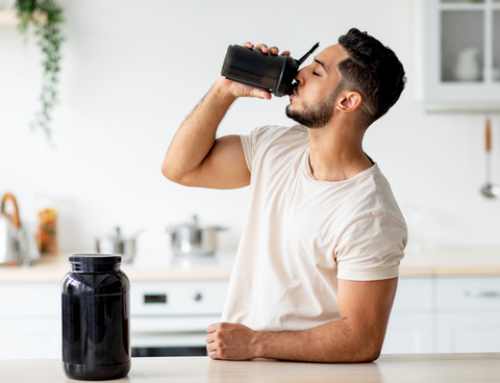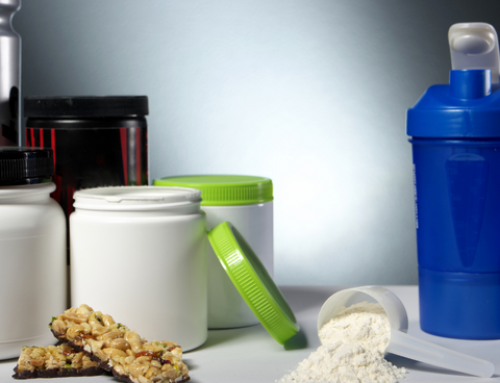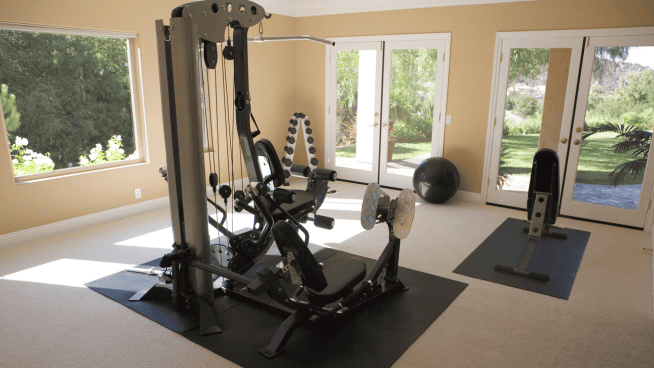Five Questions to Ask Before Choosing a Supplement
As an orthopedic surgeon specializing in the care of Division I and professional athletes, I receive many questions regarding nutrition and supplements. It is my philosophy that an athlete who has a balanced, natural diet, one that meets the demands of his or her sport, will do every bit as well as an athlete on commercially-manufactured protein and vitamin supplements.
That being said, I am also a realist. I recognize there are countless products available on the market and that competitors are always looking for an edge. As such, I think there are five key questions that every athlete should consider before taking a supplement. I call them “The Big Ds” of dietary supplements—Disqualify, Deficiency, Diminish, Dollars and Downing.
1) Will it possibly disqualify me?
In many ways, this is the most important question. All the hard hours in the gym and on the practice field can go down the drain if you take one bad supplement. This is also the scariest part. Nutritional supplements are the wild west of food and drug production. They exist in a middle ground between the rigid regulation of the FDA for pharmaceuticals and the USDA’s regulation of food products. Contamination of supplements with heavy metals, pesticides and prescription drugs is rampant.
So, what can you do? First, avoid products that have spent any part of their manufacturing life in China. Last time I checked, the FDA had never evaluated a factory there. Choose a product from the U.S. preferably, and, if possible, one that carries a money-back guarantee if any contaminants are detected. I recommend Advocare’s Informed Choice line of products.
2) Am I actually deficient in this particular nutrient?
In the vast majority of cases, eating a balanced diet, rich in fruits, vegetables, whole grains and high fiber, will provide all the nutrients you need. Furthermore, your body is better able to absorb the healthy components of these foods than pills, capsules or powders. The fact is, our gastrointestinal tract is designed to absorb nutrients from food, and it is far less efficient at doing so from the factory-made stuff. Several studies have shown the failure of high-dose vitamins to have any impact on health or disease. The best thing you can do is eat right. If you need to hedge your bets with a supplement, avoid the ones I mention below and you should be okay.
3) Could this diminish my health?
Let’s just cut to the chase here—there is a lot of bad stuff out there. As I mentioned above, supplements can include contaminants, or their alleged benefits can be totally bogus. Do your research before you ingest. For me, the terrible 10 supplements that you should AVOID are germanium, aconite, chaparral, colloidal silver, lobelia, coltsfoot, yohimbe, comfrey, kava and country mallow. I won’t go into details, but the FDA doesn’t like these and neither should you. Many of them are also banned in Europe, so they might disqualify you if you intend to compete there.
I tell my patients every day, “Let’s try this for a month; if it doesn’t have any appreciable effect, then we can stop it.” The reason for this is that supplements can be costly, and there’s no need to spend money if you feel no noticeable benefit. There are very few situations in which the supplement is worth a heavy expense on a sustained basis. The one supplement I recommend above all else, regardless of cost, is glucosamine and chondroitin sulfate, which can improve joint health.
5) Am I already downing food that is potentially more effective than a supplement?
Any time you consider a supplement, ask yourself, “Am I already eating food that has the same nutrients?” If you eat some lean chicken breast after a workout, there’s no need to drink a protein shake. Plant material is chock full of phytochemicals, which interact with each other and with other nutrients to maximize the body’s use and absorption of “the good stuff.” A healthy diet full of fruits and vegetables will deliver nutrients and minerals to your body far superior to any pill. If you see a deficiency in your diet, try to address it with food. For example, if you want more vitamin B12, simply eat some oysters, meat or even vitamin-fortified cereal. (As a side note, if you are a vegan, you will want to take a supplement to meet your vitamin B12 needs.)
If you are still uncertain after using my key questions, seek the counsel of a sports medicine physician or nutritionist. Also, be on the lookout for my 11 Blade Blog in coming weeks, where I will individually evaluate and comment on specific supplements and products.
Still concerned about supplements? Head over to out Athlete Meal Plan guide to find a meal plan guide that provides you with the same benefits you would get from supplements.
Photo: abc.net.au
Dr. Geoffrey Connor founded D1 Sports Medicine in 2010, in affiliation with D1 Sports Training, in an effort to bridge the gap between orthopaedic sports medicine and performance athletic training. He is also affiliated with Alabama Orthopedic, Spine and Sports Medicine Associates at St. Vincent’s East in Birmingham. After earning his bachelor’s degree from Wake Forest University and his medical degree from the Medical University of South Carolina, Dr. Connor completed his surgical internship and residency at the University of Alabama at Birmingham, where he trained with world-renowned sports surgeon Dr. James Andrews. He went on to complete a fellowship in orthopaedic sports surgery at the Atlanta Sports Medicine Center, where he participated in caring for the Atlanta Falcons and Atlanta Thrashers.
RECOMMENDED FOR YOU
Five Questions to Ask Before Choosing a Supplement
As an orthopedic surgeon specializing in the care of Division I and professional athletes, I receive many questions regarding nutrition and supplements. It is my philosophy that an athlete who has a balanced, natural diet, one that meets the demands of his or her sport, will do every bit as well as an athlete on commercially-manufactured protein and vitamin supplements.
That being said, I am also a realist. I recognize there are countless products available on the market and that competitors are always looking for an edge. As such, I think there are five key questions that every athlete should consider before taking a supplement. I call them “The Big Ds” of dietary supplements—Disqualify, Deficiency, Diminish, Dollars and Downing.
1) Will it possibly disqualify me?
In many ways, this is the most important question. All the hard hours in the gym and on the practice field can go down the drain if you take one bad supplement. This is also the scariest part. Nutritional supplements are the wild west of food and drug production. They exist in a middle ground between the rigid regulation of the FDA for pharmaceuticals and the USDA’s regulation of food products. Contamination of supplements with heavy metals, pesticides and prescription drugs is rampant.
So, what can you do? First, avoid products that have spent any part of their manufacturing life in China. Last time I checked, the FDA had never evaluated a factory there. Choose a product from the U.S. preferably, and, if possible, one that carries a money-back guarantee if any contaminants are detected. I recommend Advocare’s Informed Choice line of products.
2) Am I actually deficient in this particular nutrient?
In the vast majority of cases, eating a balanced diet, rich in fruits, vegetables, whole grains and high fiber, will provide all the nutrients you need. Furthermore, your body is better able to absorb the healthy components of these foods than pills, capsules or powders. The fact is, our gastrointestinal tract is designed to absorb nutrients from food, and it is far less efficient at doing so from the factory-made stuff. Several studies have shown the failure of high-dose vitamins to have any impact on health or disease. The best thing you can do is eat right. If you need to hedge your bets with a supplement, avoid the ones I mention below and you should be okay.
3) Could this diminish my health?
Let’s just cut to the chase here—there is a lot of bad stuff out there. As I mentioned above, supplements can include contaminants, or their alleged benefits can be totally bogus. Do your research before you ingest. For me, the terrible 10 supplements that you should AVOID are germanium, aconite, chaparral, colloidal silver, lobelia, coltsfoot, yohimbe, comfrey, kava and country mallow. I won’t go into details, but the FDA doesn’t like these and neither should you. Many of them are also banned in Europe, so they might disqualify you if you intend to compete there.
I tell my patients every day, “Let’s try this for a month; if it doesn’t have any appreciable effect, then we can stop it.” The reason for this is that supplements can be costly, and there’s no need to spend money if you feel no noticeable benefit. There are very few situations in which the supplement is worth a heavy expense on a sustained basis. The one supplement I recommend above all else, regardless of cost, is glucosamine and chondroitin sulfate, which can improve joint health.
5) Am I already downing food that is potentially more effective than a supplement?
Any time you consider a supplement, ask yourself, “Am I already eating food that has the same nutrients?” If you eat some lean chicken breast after a workout, there’s no need to drink a protein shake. Plant material is chock full of phytochemicals, which interact with each other and with other nutrients to maximize the body’s use and absorption of “the good stuff.” A healthy diet full of fruits and vegetables will deliver nutrients and minerals to your body far superior to any pill. If you see a deficiency in your diet, try to address it with food. For example, if you want more vitamin B12, simply eat some oysters, meat or even vitamin-fortified cereal. (As a side note, if you are a vegan, you will want to take a supplement to meet your vitamin B12 needs.)
If you are still uncertain after using my key questions, seek the counsel of a sports medicine physician or nutritionist. Also, be on the lookout for my 11 Blade Blog in coming weeks, where I will individually evaluate and comment on specific supplements and products.
Still concerned about supplements? Head over to out Athlete Meal Plan guide to find a meal plan guide that provides you with the same benefits you would get from supplements.
Photo: abc.net.au
Dr. Geoffrey Connor founded D1 Sports Medicine in 2010, in affiliation with D1 Sports Training, in an effort to bridge the gap between orthopaedic sports medicine and performance athletic training. He is also affiliated with Alabama Orthopedic, Spine and Sports Medicine Associates at St. Vincent’s East in Birmingham. After earning his bachelor’s degree from Wake Forest University and his medical degree from the Medical University of South Carolina, Dr. Connor completed his surgical internship and residency at the University of Alabama at Birmingham, where he trained with world-renowned sports surgeon Dr. James Andrews. He went on to complete a fellowship in orthopaedic sports surgery at the Atlanta Sports Medicine Center, where he participated in caring for the Atlanta Falcons and Atlanta Thrashers.











